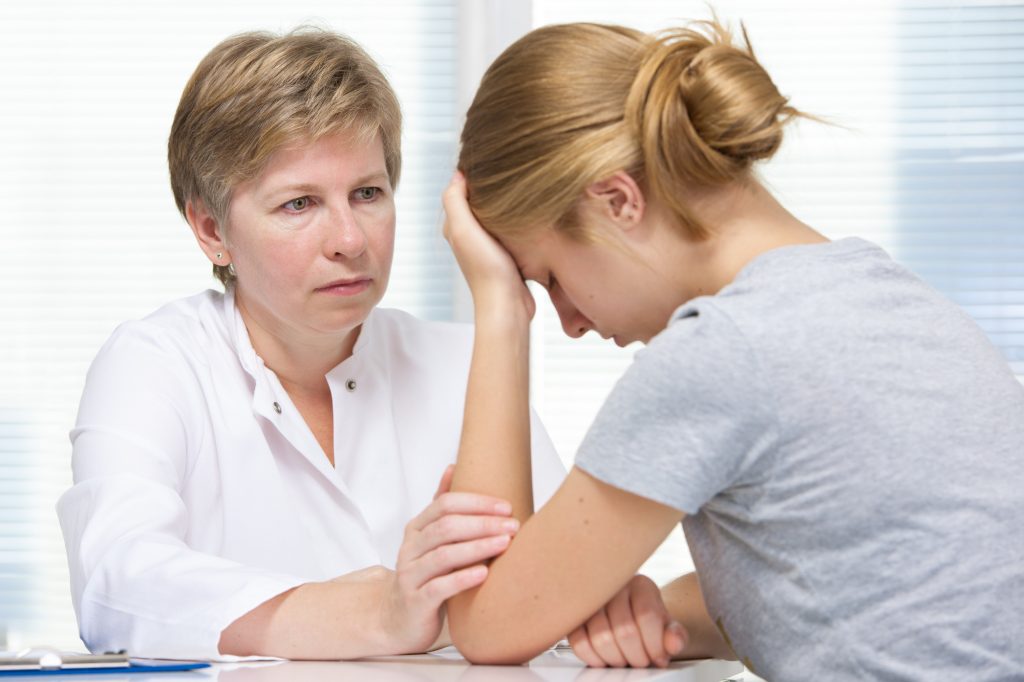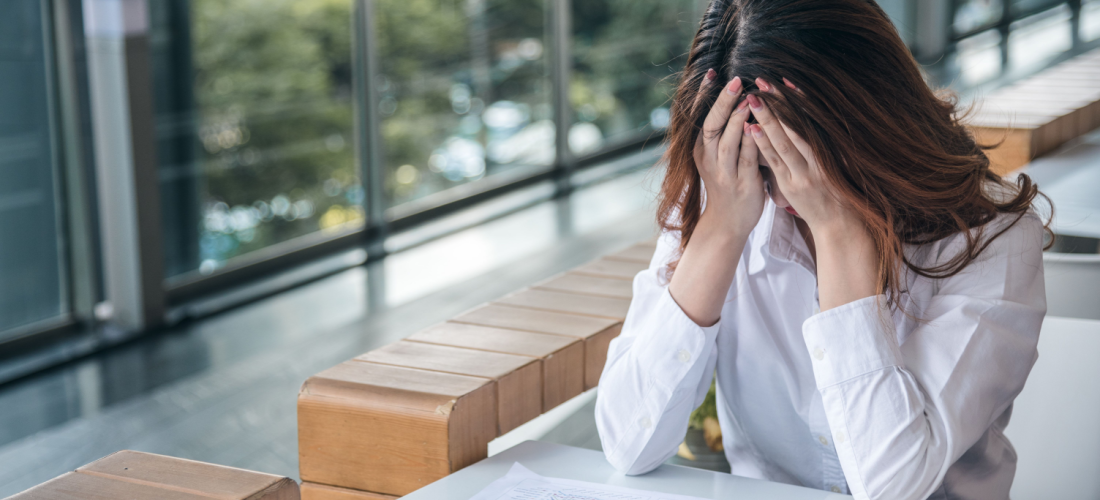Effective Methods in Therapy for Stress And Anxiety Condition: A Path to Recuperation
When encountering anxiousness disorders, you may really feel overwhelmed and uncertain of where to transform. Efficient therapy methods can pave the method for recovery, giving you with the tools to browse your challenges. From cognitive-behavioral methods to mindfulness techniques, each technique offers one-of-a-kind benefits. Recognizing just how these methods collaborate can make a significant distinction in your trip. What are the essential components that will lead you in the direction of lasting adjustment?
Recognizing Anxiety Conditions: A Detailed Review
When you believe concerning anxiety problems, it's vital to recognize that they include a variety of problems identified by extreme anxiety or worry. These disorders can manifest in numerous methods, consisting of generalised anxiety problem, panic condition, and social anxiousness disorder. You may experience symptoms like fast heart beat, sweating, or difficulty focusing. It's usual to feel overwhelmed, and these sensations can disrupt day-to-day life.Understanding the source of stress and anxiety is important. They can stem from genes, brain chemistry, or ecological elements. You might discover that particular circumstances activate your anxiety, making it important to determine these triggers.
Cognitive Behavior Therapy (CBT): Reshaping Thought Patterns

Mindfulness and Leisure Techniques: Growing Present-Moment Understanding
Mindfulness and leisure methods aid you cultivate present-moment awareness, permitting you to take care of anxiousness much more successfully. By concentrating on the present moment, you can break devoid of the cycle of concern and rumination that typically fuels anxiousness. Start by exercising deep breathing exercises. Breathe in gradually via your nose, hold for a minute, after that exhale with your mouth. This basic method can calm your mind and body.Engage in mindfulness meditation by alloting a few mins each day to observe your thoughts without judgment. Focus on your breath, experiences, and the audios around you. You could also locate value in dynamic muscle mass relaxation, where you tense and kick back each muscle group, advertising physical and psychological ease.Incorporating these methods into your everyday regimen can develop a greater sense of control, minimize anxiousness signs, and improve your total wellness. Keep in mind, uniformity is crucial to experiencing the advantages.
Exposure Treatment: Facing Anxieties Gradually
Exposure therapy assists you face your fears slowly, enabling you to develop self-confidence in time. By utilizing steady exposure techniques, you can gradually face what makes you distressed while establishing reliable coping devices. This process not just lessens your worry yet additionally equips you to take care of stress and anxiety better.
Gradual Direct Exposure Strategies
You can effectively decrease anxiousness and reclaim control over your life when you face your concerns gradually. Gradual direct exposure techniques entail facing your fears step by action, starting with less intimidating situations. You could start by picturing the feared situation, after that progress to watching video clips or photos connected to it. Eventually, you can practice confronting the concern in genuine life, but only when you really feel ready. This technique allows you to develop self-confidence as you relocate via each phase. Keep in mind to rate yourself; rushing can increase stress and anxiety. Celebrate little triumphes in the process, as each progression equips you. By constantly applying these techniques, you'll locate that your anxieties begin to lose their grip on your mind.
Structure Coping Devices
Structure effective coping systems is crucial for taking care of anxiousness, especially as you face your worries progressively with direct exposure therapy. Start by determining your particular fears and breaking them down into manageable steps. This way, you can slowly face each fear without ending up being overloaded. For example, if you struggle with social situations, begin by exercising small interactions, like welcoming a neighbor.Alongside steady direct exposure, include relaxation techniques such as deep breathing or mindfulness to calm your mind before dealing with triggers. Keep a journal to track your development and commemorate tiny triumphes. Surround yourself with supportive pals or a therapist who can assist you. Bear in mind, it's a trip-- persistence and determination will certainly reinforce your coping systems, causing higher resilience versus stress and anxiety.
Supportive Counseling: Building Count On and Connection
To successfully sustain somebody with anxiety, establishing trust fund and relationship is necessary from the very first session. You'll want to create a safe room where they really feel comfy sharing their ideas and sensations without judgment. Active listening is vital; program real rate of interest in what they share. Recognize their sensations and confirm their experiences. It is essential to be compassionate, as this helps develop a connection and encourages openness.Be regular in your method and preserve discretion to additional reinforce that depend on. Use open body language and make eye get in touch with to convey your listening. Bear in mind, your perseverance goes a lengthy way; building connection takes time, and it's important to appreciate their pace. By cultivating this encouraging setting, you'll empower them to engage more completely in the therapeutic process, making it simpler for them to discover their stress and anxiety and work toward recovery.
Team Therapy: Shared Experiences and Cumulative Healing
Group treatment can be a powerful device for those taking care of stress and anxiety disorders, as it enables individuals to share their experiences and locate solace in the understanding of others. In this helpful atmosphere, you can reveal your sensations without concern of judgment. Hearing others' stories can stabilize your own experiences, making you feel much less alone in your struggle.Participating in group therapy helps you establish dealing techniques with shared understanding and understandings. As you pay attention to others, you might find brand-new ways to tackle your anxiety that you hadn't taken into consideration before.Moreover, the cumulative recovery that takes place in these sessions can cultivate a feeling of area, reminding you that you're not encountering your difficulties alone.Building links with others who recognize your battle can improve your confidence and motivation to challenge your anxiety. Team therapy develops a room where development and recovery come to be a shared journey, empowering you to take actions toward healing.
Incorporating Way Of Living Adjustments: Holistic Approaches to Anxiety Monitoring
While treatment provides essential support, integrating lifestyle modifications can considerably improve your capability more info to take care of anxiousness. Beginning by integrating regular physical activity right into your routine. Exercise releases endorphins, which can boost your mood and lower stress and anxiety. Next off, focus on your diet plan. Eating a well balanced diet plan abundant in fruits, vegetables, and entire grains can positively impact your mental health. Do not neglect regarding rest-- go for 7-9 hours per evening, as quality remainder is vital for psychological regulation.Mindfulness techniques, such as meditation or yoga, can likewise help you remain based and present. Consider reserving time each day to practice these strategies. Lastly, restriction caffeine and alcohol consumption, as they can aggravate anxiousness signs and symptoms. By making these alternative modifications, you develop a stronger structure for managing stress and anxiety, matching the advantages acquired from therapy. Bear in mind, every tiny action trust your path to healing.
Often Asked Inquiries
What Are the Common Physical Signs And Symptoms of Anxiousness Disorders?
Typical physical symptoms of stress and anxiety problems consist of fast heart price, lack of breath, muscular tissue stress, sweating, and headaches. You might also experience tiredness, wooziness, or intestinal problems, which can further complicate your everyday life.
Exactly How Lengthy Does Therapy for Anxiety Normally Take?

Therapy for anxiety generally takes a few weeks to several months, depending on your specific demands and development. counselling for anxiety. You'll find that regular sessions assist you create coping strategies and acquire understandings into your anxiousness
Can Anxiety Problems Be Entirely Healed?

What Should I Do in an Anxiety attack?
Throughout a panic attack, concentrate on your breathing. Inhale deeply with your nose, hold for a minute, after that exhale slowly - counselling for anxiety. Ground on your own by naming objects around you, and advise on your own it will certainly pass
Exist Medications for Stress And Anxiety Problems?
Yes, there are several medications for stress and anxiety disorders, including antidepressants and benzodiazepines. You must get in touch with a healthcare professional to find the ideal treatment plan customized to your certain requirements and scenarios for the very best results. When you believe concerning stress and anxiety disorders, it's important to identify that they incorporate a variety of problems defined by excessive fear or worry. These conditions can manifest in numerous ways, including generalised anxiousness problem, panic disorder, and social stress and anxiety disorder. Structure effective coping mechanisms is essential for managing anxiousness, particularly as you face your concerns gradually with direct exposure treatment. Team therapy can be a powerful device for those dealing with stress and anxiety disorders, as it permits individuals to share their experiences and find relief in the understanding of others. As you pay attention to others, you might discover brand-new methods to tackle your anxiousness that you hadn't thought about before.Moreover, the collective healing that happens in these sessions can cultivate a feeling of area, advising you that you're not encountering your challenges alone.Building connections with others that understand your battle can improve your self-confidence and motivation to face your anxiety.